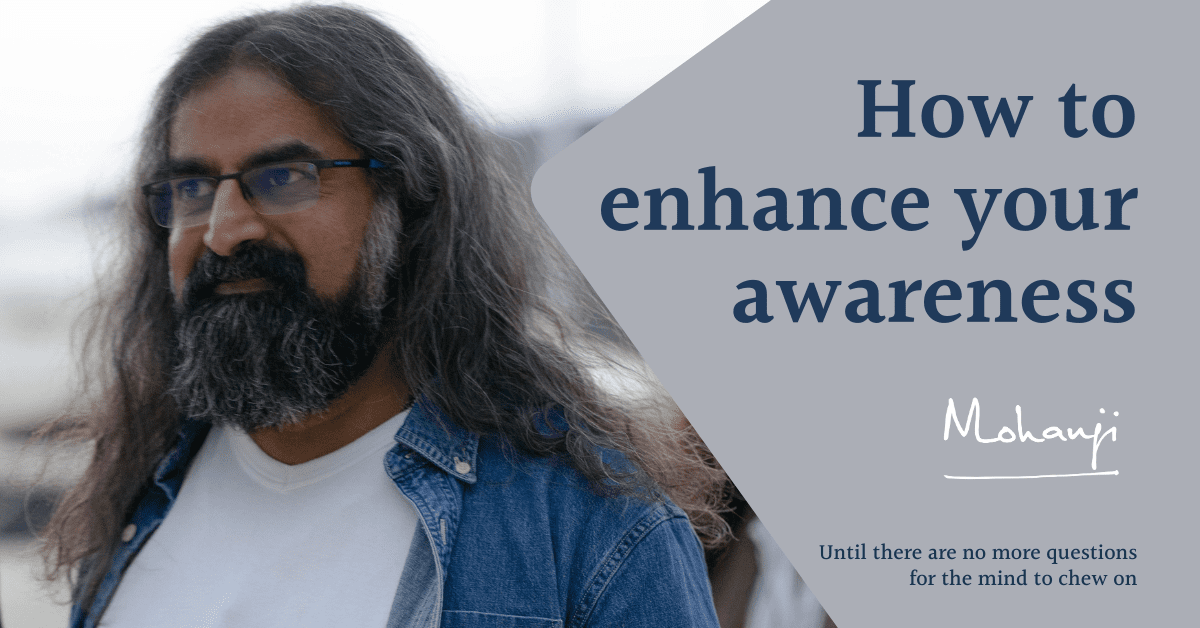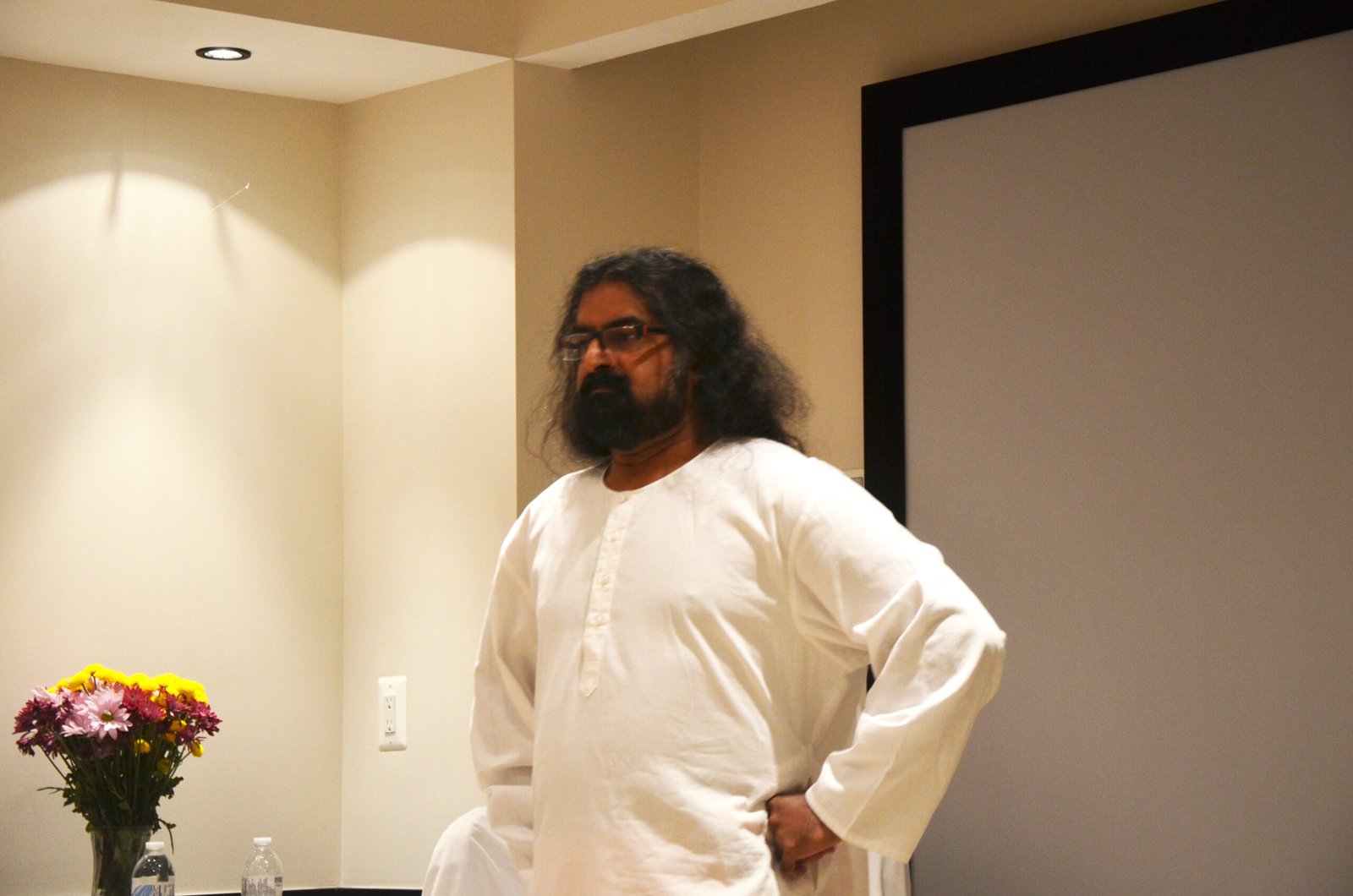Mohanji dont censor the mind, known as a spiritualist, advocates the transformational power of mental freedom by promoting the concept that “don’t censor the mind.” The premise calls on people to let go from the societal pressures and inner limitations, encouraging real expressiveness as well as emotional transparency. This approach is based on the realization that the majority of our mental ailment stems from self-imposed censorship. Often, it is caused by social expectations and fears of judgement and a set of internalized beliefs. Through mindfulness, self-reflection and non-judgmental observations, Mohanji’s instructions provide a means to get rid of mental binds, leading to a more genuine and a more peaceful existence.
Key Takeaways
- Mohanji’s Core Message: True mental liberation starts with removing self-imposed and societal censorship.
- Steps to Uncensoring the Mind: Practical methods to foster emotional resilience and clarity.
- Impact on Well-being: How mental freedom influences stress, productivity, and quality of life.
- Guided Techniques: Key strategies from Mohanji’s teachings on mindfulness and conscious living.
- Mindfulness Statistics: Evidence on the benefits of mindfulness in reducing anxiety and improving focus.
- Influence on Modern Spirituality: Mohanji’s growing role in global discussions about spiritual and mental freedom.
- FAQs: Direct answers to the most common questions about Mohanji and his approach.
In the present, when mental health issues like depression and anxiety are becoming widespread, Mohanji’s philosophy offers practical strategies for reducing anxiety, improving mental clarity and resilience to emotional stress. Studies have proven that techniques such as mindfulness and non-judgmental observations which are at the heart of Mohanji’s teachings, can have an impact positive on the mental health of people, enhancing levels of happiness and overall satisfaction. This article focuses on the fundamental principles, benefits, exercises, and the broader consequences of his “don’t censor the mind” approach. It provides a complete guide to emotional and mental release.
Understanding Mohanji’s Principle of “Don’t Censor the Mind
In essence “don’t censor the mind” allows thoughts to flow unhindered without judgement, control or inhibition. Mohanji believes that limiting the mind hinders us from experiencing our authentic nature and hampers our ability to develop and find our own self. This principle stresses the importance of embracing any thoughts that arise while observing them in a non-judgmental manner and letting them go without attachment. Mohanji claims that when we block our thoughts, it creates obstacles to understanding and accepting our true self, which can lead to internal conflict and emotional stress.
According to research from psychologists, psychological insufficiency can be detrimental to mental health. A study published by the American Psychological Association in 2023 states that those who routinely avoid thinking about the thoughts of their mind are likely to suffer higher levels of anxiety and stress and a decrease in satisfaction. Mohanji’s method encourages people to face and acknowledge their thoughts, which in turn promotes self-acceptance and lessening internal conflict. The process of releasing mental tension is in line with research that shows greater endurance and mental stability for those who engage in non-judgmental observations.
Benefits of Non-Censoring the Mind
In allowing thoughts to emerge in a non-judgmental manner, people can enjoy a range of psychological benefits such as less stress, increased self-awareness and a higher feeling of peace within. Research has shown that practicing non-censorship allows people to manage their emotions better, resulting in a decrease in depression and anxiety. In addition, the practice encourages more authenticity as people are more in tune with their authentic self rather than the personas they portray to satisfy social expectations.
Psychological Benefits of Non-Censorship (Survey Data)
| Benefit | Percentage of Respondents Reporting Improvement |
|---|---|
| Reduced Stress | 70% |
| Enhanced Emotional Resilience | 65% |
| Increased Self-Awareness | 68% |
| Greater Life Satisfaction | 60% |
| Higher Creativity | 55% |
The Dangers of Censoring the Mind
The mind’s censorship can cause a variety of mental health problems, since suppressing emotions and thoughts creates internal conflict. If someone is constantly suppressing their true thoughts and feelings, they can suffer from symptoms like tension, anxiety as well as physical health issues. In The Journal of Behavioral Science, the long-term suppression of emotions is associated with higher levels of anxiety and greater risk of developing depression. Furthermore, when people are unable to accept accepting their emotions in order to avoid recognizing their emotions, they lose opportunities for personal growth and self-understanding.
The Psychological Consequences of Self-Censorship

Mohanji’s philosophy warns against risks of self-censorship that is often rooted in the fear of judgement and social expectations. The mind when it is censored is restricted, limiting an person’s ability to be free and be authentic in their expression. Studies have proven that self-censorship can cause an issue known as cognitive dissonance. This is when people’s thoughts and actions clash and cause anxiety and a distorted perception of oneself. When they practice mental freedom to achieve coherence between their authentic self and their outer appearances.
Based on the World Health Organization, approximately 60% of those who regularly suppress their thoughts are more stressed and discontent with their lives. On the other hand those who exercise mindfulness and non-judgmental thinking tend to enjoy more emotional harmony and general happiness.
Mohanji’s Steps to Achieve Mental Freedom
Mohanji provides a number of practical methods to gain freedom from the mind. These include looking at thoughts without judgement as well as letting go of society’s expectations, and gaining the ability to feel emotionally aware. Here is a more detailed explanation the steps.
Practicing Non-Judgmental Observation
One of the fundamental elements of Mohanji’s method is his practice of non-judgmental observation. This is the practice of taking note of thoughts as they emerge, and not defining their thoughts “good” or “bad.” By avoiding judgement the mind is able to create a space where thoughts flow naturally. And reduce the urge to shut them down or analyze them too much.
Evidence on Non-Judgmental Observation
Research conducted by researchers at the University of California. Berkeley shows that non-judgmental observation is a powerful way to reduce anxiety symptoms. In the study of mindfulness-based practitioners who practiced mindfulness. Participants experienced 30 percent less anxiety symptoms following mindfulness over a period of six weeks. The reason this technique works is since it promotes acceptance of thoughts, which can help lessen the internal friction caused by mental control.
Letting Go of Societal Expectations
Mohanji stresses the importance of letting go of social expectations, which are often a contributing factor to self-censorship. A lot of people are compelled to think, behave or speak in ways that are consistent with the norms of society, despite fearing judgement or being rejected. When they let off these expectations and letting go of the expectations. People can enjoy an euphoria of mind and freedom. Since they are no longer under pressure to limit their thoughts in order in order to fit into the social moulds.
Research conducted in the area that study social psychology revealed that those who let go of societal expectations and focus on self-acceptance have better health and satisfaction in life. According to studies released in The Journal of Social Psychology people who value self-acceptance over approval from society have 40% more satisfaction with life.
Cultivating Emotional Awareness
Mohanji is a proponent of emotional awareness. This involves the recognition of emotions in their emergence and understanding the source of their emergence. Through interacting with emotions rather than ignoring the emotions, people are able to manage their mental worlds more efficiently. Increasing confidence and clarity. It also helps people to let go of feelings which could otherwise cause anxiety and stress.
According to research conducted by Stanford University. Individuals who are aware of their emotions have a lower stress response than those who shut down their emotions. The techniques for emotional regulation included as a component of Mohanji’s philosophy are proven to boost mental health by reducing anxiety levels and developing positive strategies for coping.
Practical Exercises for Uncensoring the Mind

To aid in practicing non-censorship Mohanji suggests several exercises that are easy but effective in creating the ability to think freely. The exercises can help people examine their thoughts without judgement and let go of limiting beliefs and accept their true selves.
Deep Breathing and Mindful Observation
The practice of deep breathing and mindfulness can greatly improve mental clarity and ease stress. This method involves taking deep. Slow breaths while paying attention to the present moment as you observe any thoughts that come up without judgement. The research carried out by Harvard Medical School indicates that deep breathing can lower tension hormones around 20%, thereby improving physical and mental health.
Journaling Without Censorship
Journaling can be a powerful instrument for self-reflection and exploration. Mohanji suggests that people note down their thoughts and feelings, without fear of censorship. Journalists who write freely are able to uncover hidden patterns and confront emotions that are suppressed which can lead to a greater understanding of themselves. Research has proven that those who write without self-censorship have an increase in cognitive clarity as well as emotional freedom.
Guided Visualization for Releasing Limiting Beliefs
The exercises of visualization can also aid people let go of limiting beliefs that cause self-censorship. By using guided visualization, people visualize themselves letting go of their beliefs that are restrictive and embrace the freedom of their mind. This technique has been demonstrated to boost the resilience of our emotions and boost confidence. Studies by The Journal of Visualization Studies shows that visualization can lower stress levels by around 30% and boost self-esteem.
The Impact of Mental Freedom on Daily Life
The freedom to think has significant impact on all aspects of everyday life. From relationships with family and friends to professional achievement. If people adopt Mohanji’s principle of non-censorship, they are reported to have greater satisfaction in their work, creativity, and efficiency. The clarity of mind gained through this method allows for better decision-making, emotional resilience and a sense of personal satisfaction.
Impact of Mental Freedom on Key Life Areas
| Life Area | Reported Improvement (%) |
|---|---|
| Personal Relationships | 65% |
| Professional Success | 60% |
| Creativity | 55% |
| Decision-Making | 45% |
| Overall Satisfaction | 70% |
Enhancing Creativity and Decision-Making
The freedom to think allows for greater creativity and efficient problem solving. When people do not have the desire to limit their thoughts and are more likely to share creative ideas and consider new perspectives. A study by the National Institute of Mental Health discovered that those who practice the practice of mental freedom can are able to enjoy 50% increase in creativity as they’re no longer enslaved by the fear of being judged and social expectations.
Strengthening Personal Relationships
Non-censorship also improves personal relationships as individuals are more genuine and emotional. When people don’t cover up their true feelings or thoughts and feelings. They develop deeper bonds with their peers, which can foster trust and understanding.
Conclusion
Mohanji’s concept that says “don’t censor the mind” offers a powerful framework to help people achieve emotional and mental freedom. By focusing on non-judgmental observations as well as letting go of social expectations and developing an awareness of emotions, people will experience a profound feeling of self-acceptance and freedom. The clarity of mind and emotional resilience that are cultivated through these techniques lead to higher happiness, greater relationships. And an overall more fulfilled life. The advantages of a relaxed mind continue to be proven by studies.Mohanji’s lessons are a great guide to anyone who is looking to find inner peace and discover their own self.
Also read more: amanda labollita leaked hlbalbums


